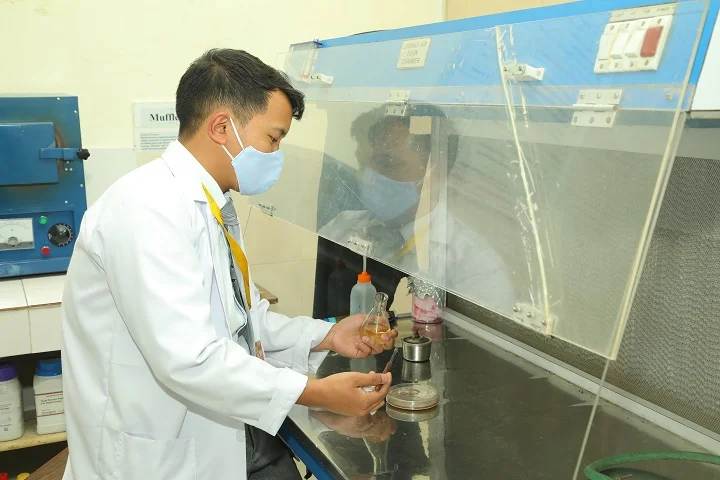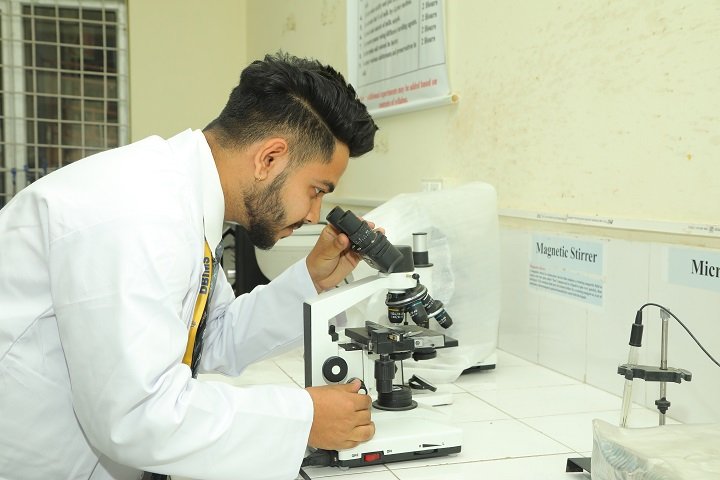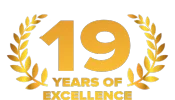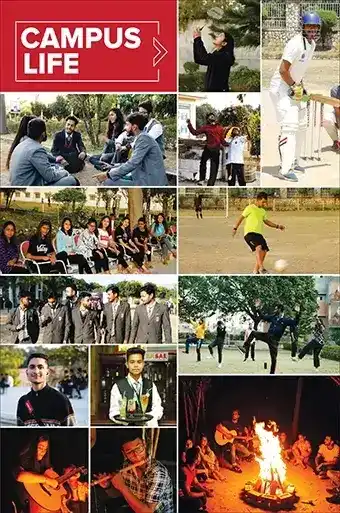M.Sc. Food Technology

M.Sc. in Food Technology is a two-year postgraduate program that offers advanced training in the science and technology of food processing, preservation, and packaging. The course teaches students about the principles of food engineering, food chemistry, food microbiology, and food safety. It provides a thorough and comprehensive view of how to design and develop nutritious and safe food products, as well as how to evaluate their quality and sensory attributes.
This programme will increase your value in the job market because the food industry is one of the largest and fastest-growing industries worldwide. With a Masters in Food Technology programme, you can work in various sectors of the food industry, such as food processing, quality control, research and development, and food safety management. This programme from DBUU, the best msc food technology college in dehradun, equips you with the necessary knowledge and skills to innovate and create sustainable and healthy food products that meet the demands of the global food market.
This programme will train you to become a competent and responsible food technologist and help you advance your career through its rigorous and practical curriculum and research-oriented approach.
Salient Features
- 19+ years of academic experience
- Focus on student-centered learning
- Problem-based learning and industry-relevant curriculum
- Best placement opportunities to get placed in high-end and reputed companies
- Industrial training in reputable firms and organizations
- The privilege of 100% placement guidance and support
- Industry visits, seminars, workshops, and guest lectures by eminent researchers and industry practitioners
- Active student clubs and bodies
- The multi-cultural and vibrant teaching environment
Admissions Open 2024!!
Merit-based admission process with online application at Dev Bhoomi Uttarakhand University.
Eligibility & Fee Details
Duration & Eligibility
2 Years
Candidate must have completed Bachelor's Degree in B.Sc Food Technology/Microbiology/ Biotech/ Agriculture/ BSc-CBZ/Home Science from a recognized university with minimum 45% or equivalent CGPA in aggregate.
Fee Structure |
|||
| Course | Total Fees | ||
| Academic fee ( Per Sem) | ₹ 35000/- | ||
One Time Fee |
|||
| Application Fee (Non-Refundable) | Admission Fee (Non-Refundable) | University Enrollment Fee (Non-Refundable) | |
| ₹ 1,500 | ₹ 7,000 | ₹ 3,000 | |
| Exam fees ( Per Semester) | 4,500/- | ||
Download Fee Structure |
Click Here | ||
Programme Educational Objectives (PEO's)
| PEO-1 | To prepare students with a comprehensive understanding of the principles and practices of food science and technology. |
| PEO-2 | To equip students with the knowledge and skills necessary to develop, design, and implement innovative and sustainable food processing, preservation, and packaging technologies. |
| PEO-3 | To provide students with the ability to evaluate and control the quality and safety of food products through the application of scientific and technical principles. |
| PEO-4 | To foster critical thinking, problem-solving, and decision-making skills that enable graduates to identify and address challenges in the food industry and related fields. |
| PEO-5 | To prepare students to pursue advanced research and development opportunities in food science and technology or related fields. |
Program Specific Objectives (PSO's)
| PSO-1 | To provide students with an in-depth understanding of the principles and practices of food technology and engineering, food microbiology, food chemistry, and food safety. |
| PSO-2 | To equip students with the necessary knowledge and skills to develop innovative and sustainable food products that meet the demands of the global food market. |
| PSO-3 | To train students to evaluate and improve the quality, safety, and sensory attributes of food products using modern analytical and sensory techniques. |
Program Grid Structure
Semester 1
| Course Code | Course | Credit |
|---|---|---|
| 23MSFT101 | Principles of Food Processing and Preservation Techniques | 4 |
| 23MSFT102 | Food Microbiology | 4 |
| 23MSFT103 | Food process engineering | 4 |
| 23MSFT104 | Techniques in Food Analysis | 4 |
| Practical | ||
| 23MSFT181 | Practical I (Practical related to the above syllabus of the core subjects) | 2 |
| TOTAL | 18 | |
Semester 2
| Course Code | Course | Credit |
|---|---|---|
| 23MSFT201 | Fermentation Technology | 4 |
| 23MSFT202 | Food Product Development and Quality Evaluation | 4 |
| 23MSFT203 | Food laws and Regulations | 4 |
| 23MSFT204 | Research Methodology and Statistics | 4 |
| Practical | ||
| 23MSFT281 | Practical II (Practical related to the above syllabus of the core subjects) | 2 |
| TOTAL | 18 | |
Semester 3
| Course Code | Course | Credit |
|---|---|---|
| 23MSFT301 | Food Biotechnology and Nanotechnology | 4 |
| 23MSFT302 | Food Packaging Technology | 4 |
| 23MSFT303 | Food Additives, Contaminants and Toxicology | 4 |
| Elective Course-I* | (Only one subject has to be selected from the basket of subjects provided by the department) | 4 |
| Elective Course-II** | (Only one subject has to be selected from the basket of subjects provided by the department) | 4 |
| Practical | ||
| 23MSFT381 | Food Packaging Technology lab | 2 |
| 23MSFT382 | Food Additives, Contaminants and Toxicology Lab | 2 |
| TOTAL | 24 | |
Semester 4
| Course Code | Course | Credit |
|---|---|---|
| 23MSFT401 | Food Business Management and Entrepreneurship Developement | 4 |
| 23MSFT402 | Food Plant Equipment | 4 |
| Practical | ||
| 23MSFT482 | Dissertation/Internship | 10 |
| 23MSFT483 | Seminars | 2 |
| TOTAL | 20 | |
Programme Elective-I
| 23MSFTEC304 | Nutraceuticals and Health Foods |
| 23MSFTEC305 | Technology of Spices and Plantation Products |
Programme Elective-II
| 23MSFTEC306 | Food industry waste management and By product utilization |
| 23MSFTEC307 | Technology of Fruits and Vegetables |
Job Opportunities The Course Might Lead To
Completing an M.Sc. in Food Technology can open up a range of job opportunities in the food industry. Some potential job roles include:
- Food Technologist
- Quality Assurance Manager
- Research and Development Scientist
- Food Safety Manager
- Food Packaging Specialist
- Sensory Scientist
- Nutritionist
- Food Processing Engineer
- Supply Chain Manager
- Technical Sales Representative

Admission 2023-24






